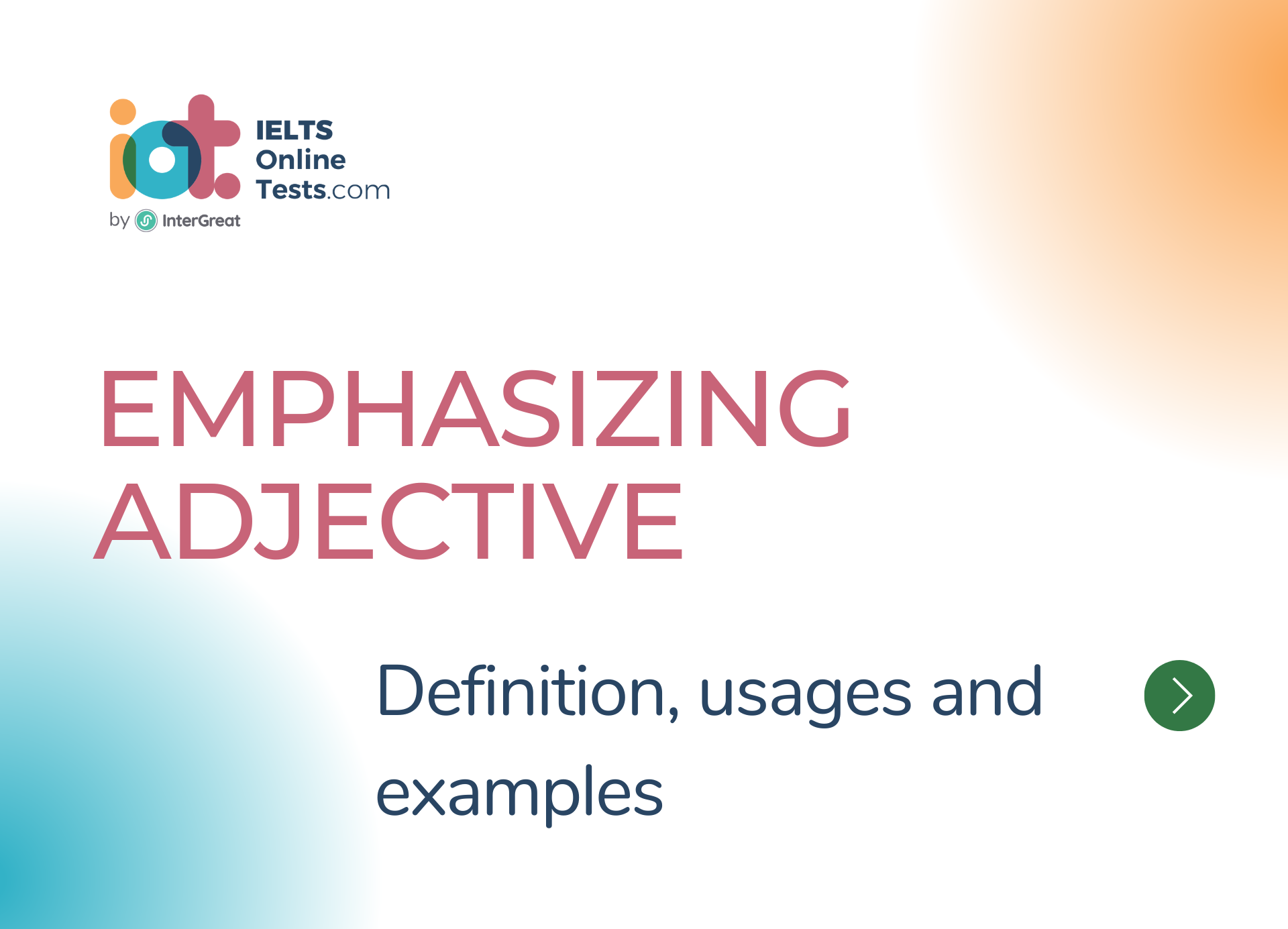
Emphasizing Adjective definition, usages and examples
Emphasizing adjectives, also known as intensifying adjectives, are used to express a stronger degree or intensity of a quality or characteristic. They add emphasis and impact to the description of a noun.
Here are some key points about emphasizing adjectives:
Purpose: Emphasizing adjectives are used to intensify or emphasize the degree of a quality or characteristic.
- Example:
- "She is extremely talented,"
- "The coffee is incredibly delicious."
- Example:
Intensity: Emphasizing adjectives intensify the meaning of the adjective they modify, expressing a stronger or more extreme degree.
- Example:
- "It was an absolutely stunning view,"
- "He is a truly exceptional athlete."
- Example:
Adjective Modification: Emphasizing adjectives modify other adjectives, not the noun directly.
- Example:
- "He is very intelligent,"
- "She is quite beautiful."
- Example:
Placement: Emphasizing adjectives are typically placed before the adjective they modify.
- Example:
- "He is exceptionally tall,"
- "She is remarkably fast."
- Example:
Degree of Intensity: Emphasizing adjectives can vary in intensity, with some expressing a stronger emphasis than others.
- Example:
- "extremely," "incredibly," "absolutely," "very," "quite," "remarkably."
- Example:
Usage: Emphasizing adjectives are commonly used in descriptive writing, storytelling, or when emphasizing a particular quality for impact or emphasis.
- Example:
- "The concert was unbelievably amazing,"
- "That was an absolutely hilarious joke."
- Example:
Emphasizing adjectives enhance the impact and intensity of descriptions by intensifying the degree of a quality or characteristic. They help to convey a stronger sense of the attribute being described, creating a more vivid and impactful image in the reader's mind. By using emphasizing adjectives appropriately, you can add depth and emphasis to your language and make your descriptions more vibrant.




